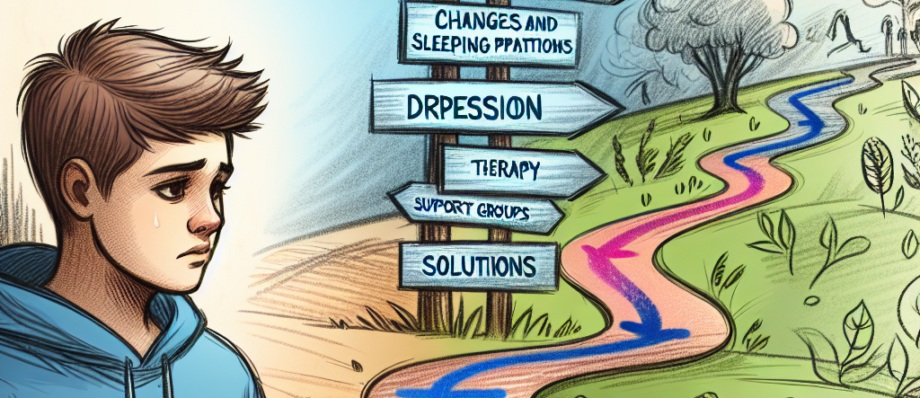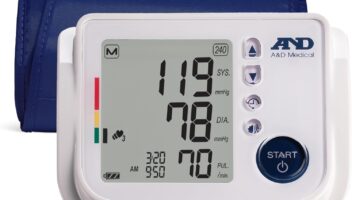Navigating the Stormy Seas of Teen Depression with Hope
Teenage years are often portrayed as a time of excitement, exploration, and fun. However, for many adolescents, this period can also feel like a tumultuous ocean of emotions, with depression lurking like a hidden undertow. As a parent, teacher, or friend, recognizing the signs of depression in teens can be both heart-wrenching and confusing.
In my experience, I’ve seen close friends battle their inner demons. One friend, whom I’ll call Sarah, seemed to have the perfect life: great grades, a supportive family, and a close-knit friend group. But beneath that facade, she was struggling. She felt isolated and lost, unable to express her feelings. It was hard to see someone I cared about going through such a difficult time, and I learned that many teens are silently battling their own storms.
Understanding the Signs of Depression in Teens
It’s essential to open our eyes to the warning signs of depression. Here are a few indicators that may suggest a teen is struggling:
- Changes in Sleep Patterns: Insomnia or excessive sleeping can be red flags.
- Loss of Interest: A noticeable disinterest in activities they once loved can indicate deeper issues.
- Social Withdrawal: Isolating themselves from friends and family can be a sign of emotional distress.
- Mood Swings: Frequent changes in mood, including irritability, sadness, or anger, may be a clue.
- Poor Academic Performance: A decline in school performance or attendance can signal trouble.
If any of these seem familiar, remember that you’re not alone in this fight. Many families have faced similar struggles, and there are paths to healing.
The Power of Open Conversations
Talking is often the first step towards healing. As a teenager, Sarah felt unheard and misunderstood. Once I encouraged her to share her feelings, we engaged in open conversations, filled with validation and empathy. It was astonishing how a simple dialogue could lift the weight of the world off her shoulders, even if just a little.
Encouraging open conversations with your teenager doesn’t have to be daunting. Here are a few tips to facilitate a meaningful dialogue:
- Create a safe space: Let them know it’s okay to share without judgment.
- Ask open-ended questions: Encourage them to express their feelings.
- Listen actively: Show that you’re engaged and genuinely care about their experiences.
Online Therapy: A Ray of Hope
Therapy can be a lifeline for teens dealing with depression. Traditional therapy has its merits, but online therapy offers unique benefits that might resonate better with adolescents:
- Accessibility: Teens can access therapy from the comfort of their own home, making it less intimidating.
- Flexibility: Online sessions can often fit around their schedules, reducing stress.
- Anonymity: The online platform can make it easier for young people to express themselves freely.
The digital age has granted us new tools for mental health. If you or someone you know could benefit from professional help, consider exploring online therapy options. Take a step towards healing today by checking out online therapy resources here.
Building Resilience and Coping Strategies
While seeking help is paramount, building resilience and employing coping strategies can significantly support a teen’s mental health journey. Here are some strategies that can make a difference:
- Journaling: Writing down thoughts can help express feelings constructively.
- Mindfulness and Meditation: Practicing mindfulness techniques can reduce anxiety and stress.
- Physical Activity: Exercise is a tremendous mood booster and can provide a natural antidepressant effect.
- Creative Outlets: Art, music, or dance can serve as excellent ways to express emotions and relieve stress.
Emphasizing such activities can encourage teens not only to cope with their feelings, but also to build self-esteem and resilience.
The Importance of Support Systems
A supportive network can play a pivotal role in helping a teen navigate depression. Whether it’s family, friends, teachers, or mentors, having a solid support system can provide comfort and advocacy. It’s essential for us to create a culture where mental health is openly discussed and prioritized. Here are ways to foster that support:
- Encourage peer connections: Friends understanding each other’s struggles can be incredibly powerful.
- Involve community resources: Schools often have counselors and programs dedicated to student mental health.
- Stay informed: Educate yourselves and your teens about mental health issues.
By creating a network of support, we can uplift our teens and remind them that they don’t have to face their battles alone.
Moving Forward Together
The journey through teen depression can seem overwhelming, but it’s vital to remember that hope exists. With the right support, resources, and love, recovery is entirely possible. As both individuals and communities, we must stand together, advocate for mental health awareness, and ensure that every teen knows they are not alone in their struggles.
The challenges faced in these formative years do not define the future. Just like Sarah, with the right tools and support, many teens can navigate through their struggles and emerge more resilient. Let’s continue building a world where mental health is openly discussed, and healing is always within reach.
If you or someone you know needs assistance, explore the benefits of online therapy here and take that important step towards well-being. Remember, hope is a powerful force, and together, we can illuminate even the darkest paths.
Disclosure:
Hospitals.net is a participant in the Amazon Services LLC Associates Program, an affiliate advertising program designed to provide a means for sites to earn advertising fees by advertising and linking to Amazon.com, .ca, .co.uk, etc.
AI Disclaimer:
Hospitals.net uses artificial intelligence (AI) tools to assist in gathering and summarizing product information, including reviews and other relevant data for Amazon products and services. While we strive to ensure the accuracy of the information provided, AI-generated content may not always reflect the most up-to-date or accurate details. The information on our site should not be considered professional advice, and users are encouraged to verify any product details directly with Amazon or other official sources before making a purchase.
We do not guarantee the completeness or accuracy of the AI-generated content and are not liable for any discrepancies or errors. Any reliance on the information provided is at the user’s own risk. By using this site, you acknowledge that product availability, pricing, and other details may change over time, and Hospitals.net is not responsible for these changes.
Health Disclaimer:
The health products and information provided on Hospitals.net are for informational purposes only and are not intended to substitute professional medical advice, diagnosis, or treatment. Always consult a qualified healthcare provider or medical professional before using any health products or following any advice you find on this site. The content on Hospitals.net, including product recommendations and reviews, is not a substitute for individualized care from a healthcare provider.
We make no warranties or representations regarding the effectiveness, quality, or safety of the products listed on our site. Any use of these products is solely at your own risk. Hospitals.net is not liable for any harm, injury, or adverse effects that may result from the use or misuse of the health products or information provided.
Please read all product labels, warnings, and directions provided by the manufacturer before using any product. If you have any questions about a product or its suitability for your condition, we recommend contacting the manufacturer directly or consulting a healthcare professional.
If you have any concerns regarding the accuracy of the information on this site, please contact us for further clarification.



